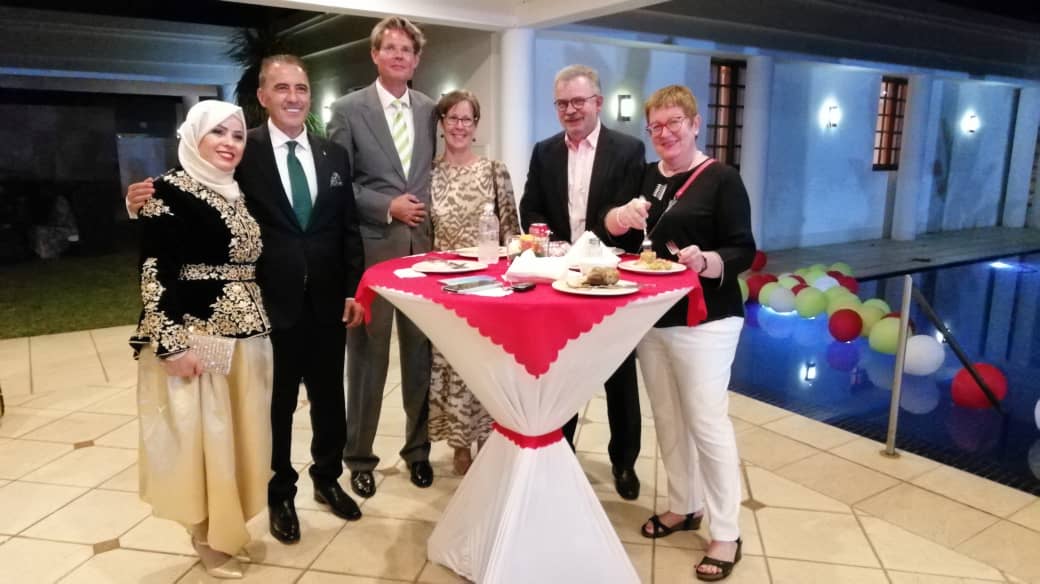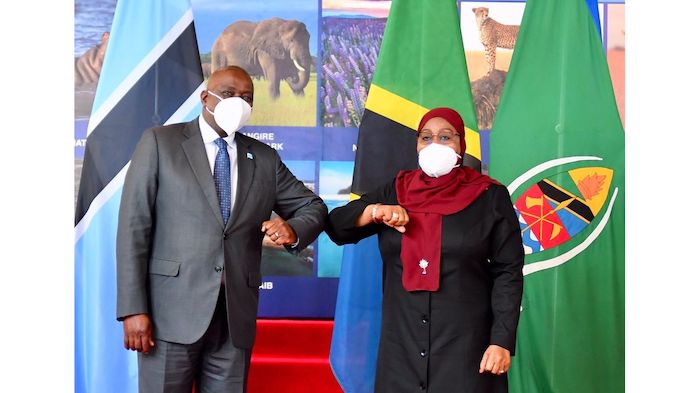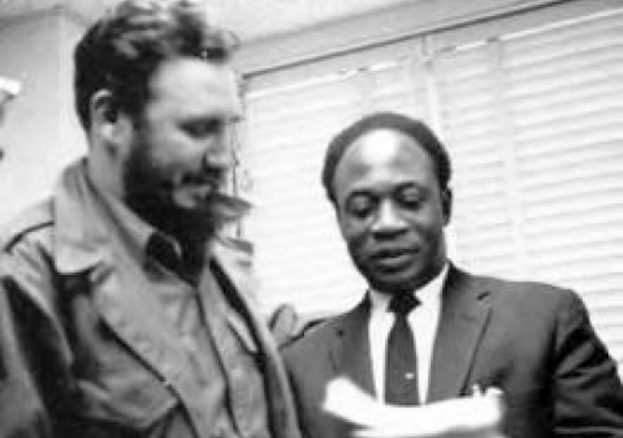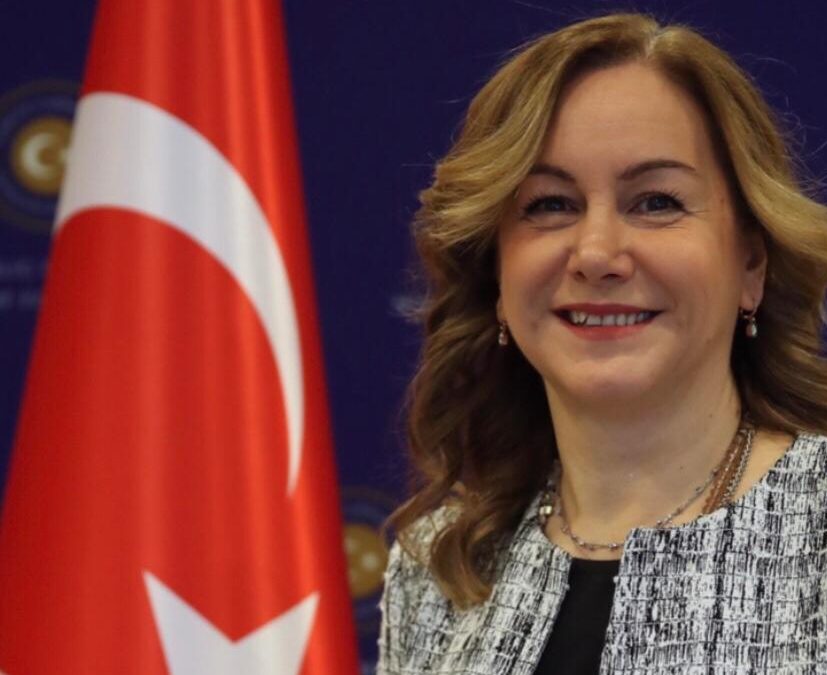
Algerian-Ambassador-Mourad-Adjabi-and-wife-joined-by-fellow-members-of-the-Diplomatic-Corps-during-the-auspicious-celebration. Pic (@TPA22)
Thelma Obakeng
The 1st of November is deemed a very important date in the history of Algeria as it marks the beginning of the Algerian war of liberation in 1954.
The newly-opened Algerian embassy hosted a reception Tuesday evening at the Ambassador’s residence to celebrate the 68th anniversary of the Glorious Algerian Revolution of November 1st 1954.

In his remarks, the Ambassador of the People’s Democratic Republic of Algeria His Excellency Mourad Adjabi mentioned that the war, which lasted eight years culminated with independence on the 5th of July 1962, thereby ending 132 years of French colonial rule.
Algeria is the world’s 10th and Africa’s largest country with a population of 45million and an area of 2.3 million square kilometers, as well as a thriving economy and robust infrastructure.
The country is classified as an upper middle income country with a GDP estimated to have recovered to its pre pandemic level in the first quarter of 2021, after contracting by 5.1 % in 2020.
Ambassador Adjabi quoted a recent report published by the IMF in October this year which states that Algeria is set to achieve a growth rate of 4.7 % by the end of the current year, placing it among the fastest growing economies in the world.
The envoy concluded that the decision of Botswana to open an Algerian embassy in Gaborone for the first time since the establishment of diplomatic relations between the two counties has strengthened Algeria’s resolve to further expand the bonds of friendship between the two nations.
For his part, Botswana’s Minister of Foreign Affairs Dr. Lemogang Kwape congratulated the People’s Democratic Republic of Algeria on their 68th anniversary of the glorious revolution.
He commended the government of Algeria for the significant socio-economic strides made thus far, saying that Botswana and other African countries could learn a thing or two as they continue on the path of improving the socio-economic livelihoods of their people.
He said Botswana appreciates the decision by the government of Algeria to have a fully-fledged embassy, as this demonstrates the commitment by both countries to strengthen their bonds of friendship and cooperation.
Among other invited guests was the speaker of the National Assembly Phandu Skelemani and his wife, the Chancellor of the University of Botswana Tebelelo Seretse, Ambassadors of Russia, China, India, Turkey, Germany and motor magnate Satar Dada as well as the Olympian Nigel Amos and representatives of the local municipality and UN agencies.
A brief history of the Glorious Algerian Revolution
It all started with a particularly bloody invasion in 1830 characterized by a continuous “scorched earth” policy, including genocide and other atrocities.
Some historians point out that between 500,000 and 1,000,000, from approximately 3 million Algerians, were killed in the first three decades of the conquest.
Hundreds of thousands of French and other Europeans (Spanish, Italians, Portuguese, Maltese and others) later settled in Algeria.
Spearheaded by the Emir Abdelkader from 1832 to 1847, the Algerian resistance against the French occupation continued unabated for more than forty years through military battles and uprisings across the country.
These were then followed, in the first half of the 20th century, by relentless political struggle but which led nowhere in terms of reclaiming the legitimate rights of the Algerian indigenous population.
And as a result of the massacres of 8 May 1945, it became clear for the majority of nationalist parties and movements that armed revolt was the only course of action left to put an end to a century-long occupation, humiliation and untold misery.
And so, purposely choosing the day of the Allied victory over the Nazis, thousands of Algerians demonstrated in several cities of the country to assert their right to self-determination, referring explicitly to the principles of the Atlantic and United Nations charters.
These peaceful demonstrations were met with swift repression, and weeks-long punitive expeditions, with hundreds of summary executions carried out not only by the French army and police, but also by European civilians organized into militias. 45,000 Algerians were killed as a result.
For a majority of historians, 8 May 1945 was thus considered the beginning of a war that would erupt full-scale nearly a decade later, on the 1st of November 1954 precisely.
Following an almost eight-year long war of liberation that claimed the lives of 1.5 million Algerians, the French government finally accepted to open a series of negotiations with the National Liberation Front which eventually led to the conclusion of the “Evian Accords” in March 1962 and the organisation of a referendum on the 1st of July of the same year.
The vote was nearly unanimous, with 99.72% of the electorate voting for independence. Having thus acted the restoration of its state, Algeria subsequently joined the United Nations family, as its 109th member, on 8 October 1962.
Since then, as a non-aligned country, Algeria has been playing a prominent role in its neighborhood, and on the regional and global stage, supporting all just causes, from the completion of the decolonisation process in Africa and elsewhere to the establishment of a more representative and equitable international system, and the promotion of multilateralism, cooperation and solidarity.
In the words of its current Minister of Foreign Affairs, Algeria is a ‘net exporter of peace and stability in the region and beyond’.
© The Pan Afrikanist 2022








